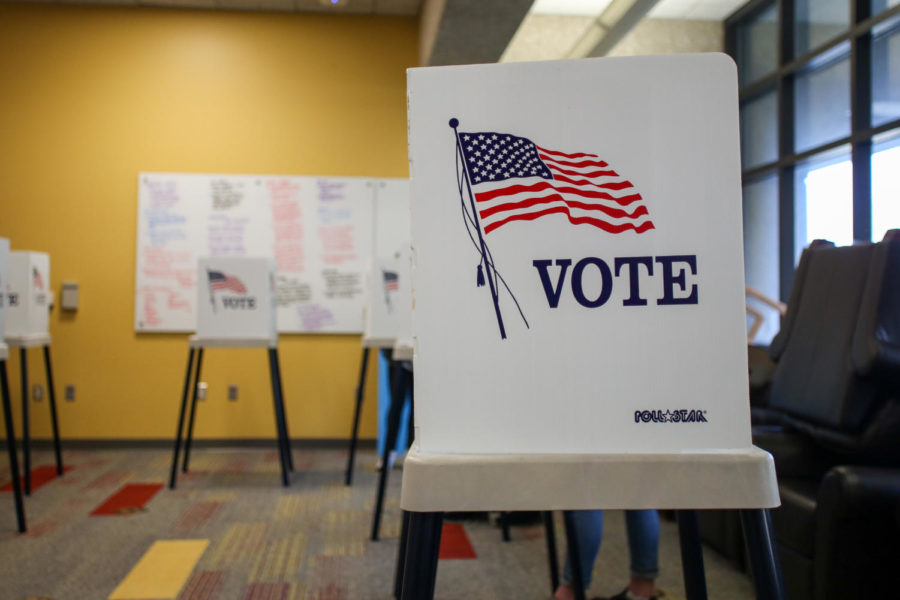Interns for the Carrie Chapman Catt Center at Iowa State are working to simplify voting for students with a new initiative. Delaney Graef and Paola Martinez, both interns for the center, are spearheading a civic engagement campaign known as #CyclonesVote, which is aimed at making voting easier for students in Ames.
Martinez, a political science major, referenced a study by the National Study of Learning, Voting and Engagement, conducted by the Institute for Democracy & Higher Education at Tufts University.
Karen Kedrowski, the director of the Carrie Chapman Catt Center for Women and Politics, clarified that STEM majors and men tend to vote at lower rates.
“There is considerable overlap between STEM majors and men,” Kedrowski said. “Men make up 85% of STEM majors at ISU.”
According to the report, the voting rate for engineering students during the 2022 midterm elections was 24%. However, for majors in fields like area, ethnic, cultural and gender studies, voting rates were as high as 65%.
When encountering those who view voting in presidential elections negatively, Martinez reminds them that local politics are still on the ballot.
“It’s about being involved,” Martinez said. “Helping your friends, your coworkers. Voting might not matter to you but it’s important to see things change right in front of your eyes.”
“Politics can be negative,” Graef, a forestry student, said.
“Voting feels like a heavy cloud almost to some people,” Graef said. “And we’re trying to show that actually it’s not as bad…not as scary as it seems.”
The interns said they had a conversation last spring about how they can make voting “less tense.”
“Our stickers work to target people of all different backgrounds,” Graef said, referencing the stickers that can be found at their events and frequent tabling locations.
At #CyclonesVote events and tables, however, there are more than just stickers.
“We have pre-printed registration forms,” Martinez said. “Just give us the paper back, and then we send it out.”
The form contains only eight questions and, according to the interns, takes three minutes to fill out.
“We provide answers if they have any questions because everyone here is from a lot of different backgrounds,” Martinez said. “We do our best just getting out there and understanding people.”
Events and Opportunities
#CyclonesVote will be tabling until Election Day but can only register people before Oct. 21.
Tables can be found on campus four times a week in different high-traffic locations. They hope to get a schedule posted to their Instagram page, @cyclonesvote, in the near future.
ISU AfterDark will take place from 9 p.m. to midnight Friday, and will include a raffle to win entries for free swag from Catt Hall and other sponsors of #CyclonesVote.
The Voting Music Concert, in collaboration with the jazz department, will be held from 4 p.m. to 9 p.m. Oct. 9 in the Simon Estes Hall and will include music and free food.
IPR Politics on the Road will be held Oct. 17 in the Memorial Union.
More information on these events and volunteer opportunities will be posted to the @cyclonesvote Instagram page.













